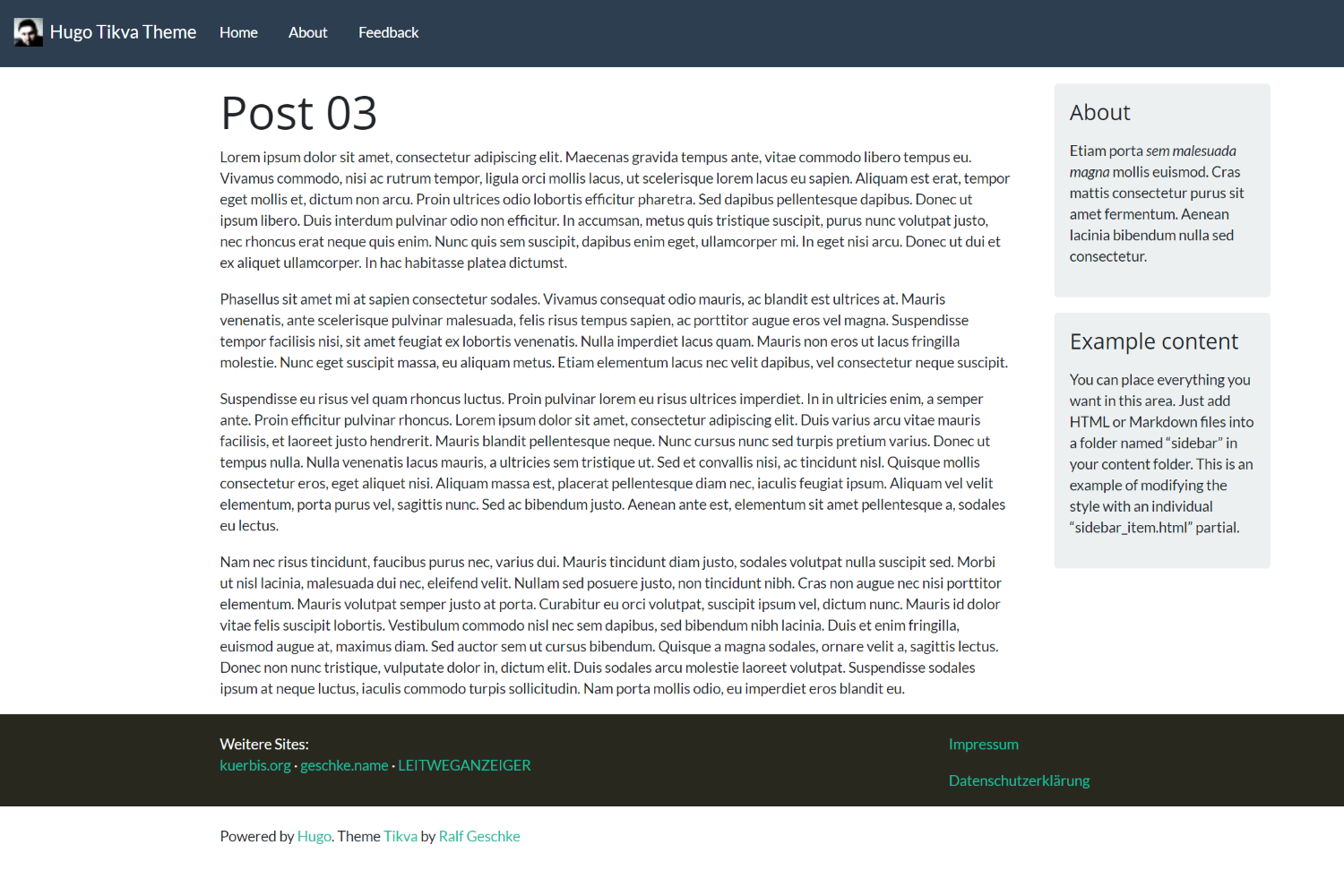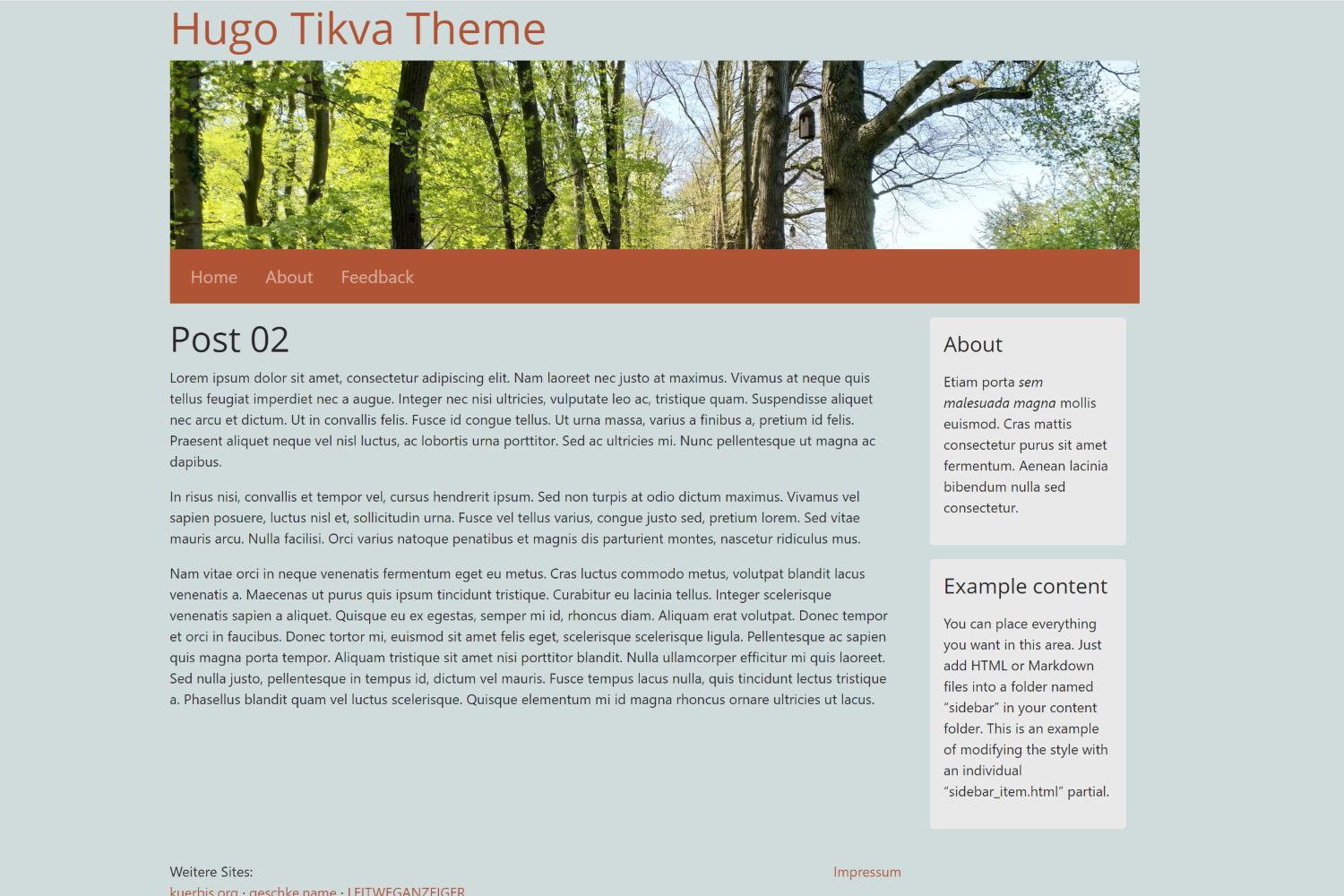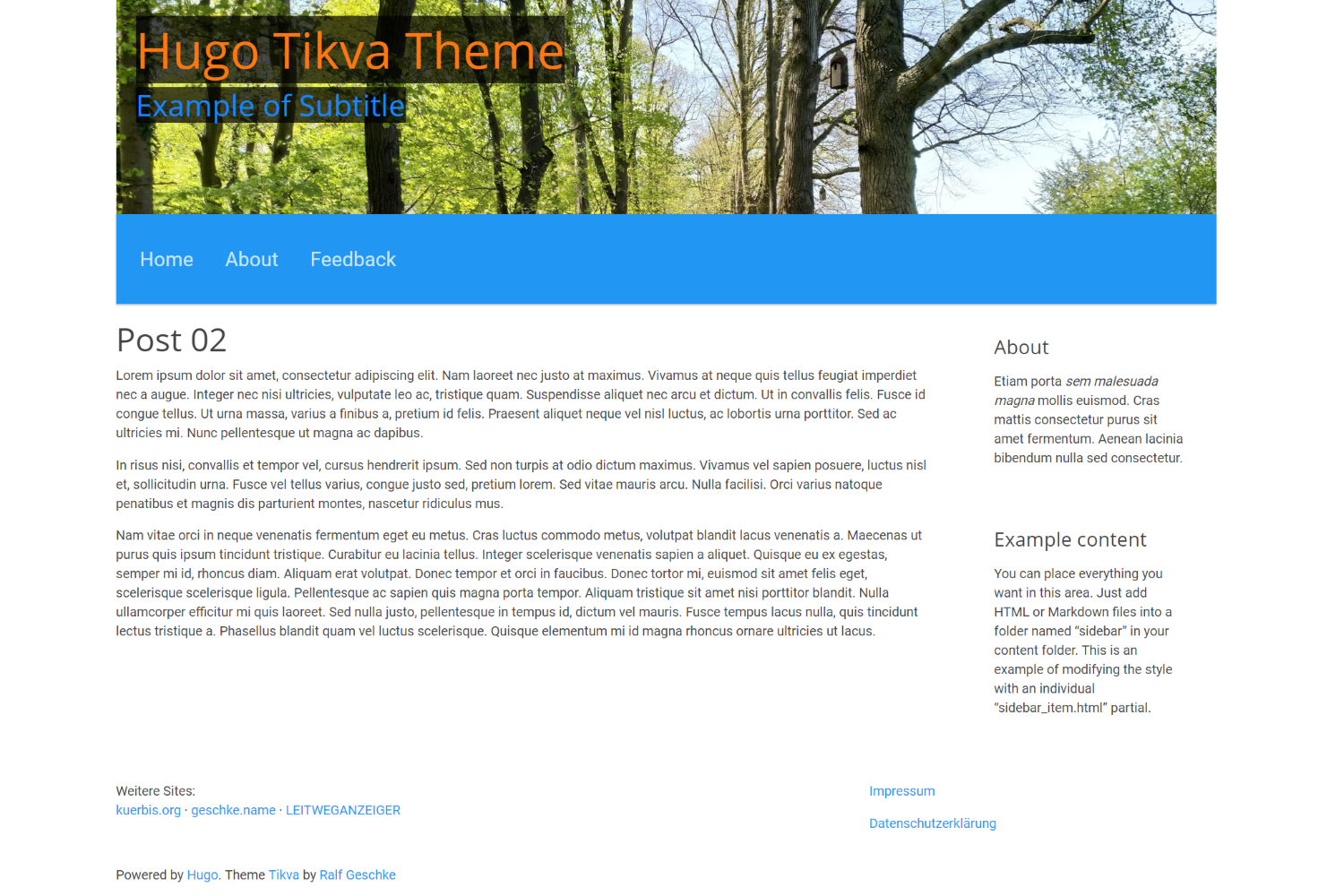Hugo Themes
Tikva
Tikva is a minimalistic Hugo theme, based on Bootstrap 4 framework
- Author: Ralf Geschke
- Minimum Hugo Version: 0.48
- GitHub Stars: 7
- Updated: 2020-12-20
- License: MIT
- Tags: Blog Bootstrap Dark Light Minimal Responsive

Tikva Theme for Hugo
Tikva is a minimalistic Hugo theme, based on Bootstrap v4 CSS framework. It is a port of the Tikva theme which I developed a while ago for Grav CMS and WordPress, but there are also some features added from the (still unpublished) Azbalac Theme for WordPress. Tikva integrates multiple Bootstrap styles from the Bootswatch project and adds some customized styles. It’s also possible to edit some color options by config option.
Features
- Responsive design, using the Bootstrap framework
- More than 30 designs included, half of them newly created, the other half taken from the Bootswatch project
- Three main layouts available: Content column without sidebar, sidebar on right and sidebar on left side
- Customizable font settings (size, font type and variant), support of Google Fonts included
- Support of Google Analytics (with the internal async template), Matomo and Yandex Metrica
- Flexible footer handling with multiple columns
- Support of subfooter, i.e. an area below the footer to add some content like “Powered by…” as seen in the screenshots
- Integration of custom JavaScript/CSS snippets via placeholder partials: just add a file “javascript_header.html” and/or “javascript_footer.html” into the “layouts/partials/” folder of your site, this will include the code in the head section and/or before closing body tag.
Demo
You can find a demo here.
Screenshots
Some examples of different designs:
- “header” style, header image and “darkly” theme:

- “fixed-top” style, with “flatly” theme and customized footer colors:

- “header” style, header image, title above header image, “signa” theme:

- “header” style, header image, title and subtitle as overlay, “materia” theme:

Installation
Inside the folder of your Hugo site run:
cd themes
git clone https://github.com/geschke/hugo-tikva.git
As a second option you can use the submodule feature of Git:
git submodule add -f https://github.com/geschke/hugo-tikva themes/hugo-tikva
For more information read the official setup guide of Hugo.
Configuration
Check out exampleSite/config.toml for theme configuration options and the contents of exampleSite folder.
I’ve tried to comment as much as possible in the configuration file, but the theme and documentation are far away from being complete. It is still work in progress and currently some features of Hugo aren’t supported.
Sections (Sidebars, Footer, Subfooter)
As you can see in the screenshots this theme supports three content sections which aren’t shown in the demo site, because in the demo only the default content is used. To enable the sections, create a folder sections into your content folder. Then create one or more content folders in the sections folder with their special names footer, sidebar and subfooter. In every of these folders you can place any page content you want, make the page bundle “headless” and enable the section (footer, subfooter, sidebars) in the site config file.
For a complete example please have a look at the exampleSite folder. The directory structure is at follows:
content/
[...]
sections/
footer/
column01.md
column02.md
column03.md
index.md
[...]
sidebar/
content01.md
content02.html
index.md
subfooter/
content.md
index.md
[...]
To activate the content sections, enable them in your config file:
[params.theme.footer]
enabled = true # Show the footer part
#numberColumns = 3 # Set number of columns available in footer of a page. Use the "footer" folder in the page structure to add content. If nothing is set, the default number is 3. Currently.i.e. since v0.2 not used, the number of columns is identical to the number of files in footer directory.
[...]
[params.theme.subfooter]
enabled = true # Show the content below the footer
[...]
[params.sidebar]
enabled = true # default false; set to true to enable sidebar
style = 'right' # options: 'left', 'right'. Left means sidebar on the left side, right displays the sidebar on the right side
Menu
The navbar displays the main menus by default. You can find more details about how to configure it here, as well as in the exampleSite.
License
Open sourced under the MIT license.
Contributing
If you find a bug or have an idea for a feature, feel free to use the issue tracker to let me know.
Thanks to / Used third-party components
- The Bootstrap project, which is licensed under the [MIT license]
- Thomas Park and the contributors of the Bootswatch project.
- Font Awesome